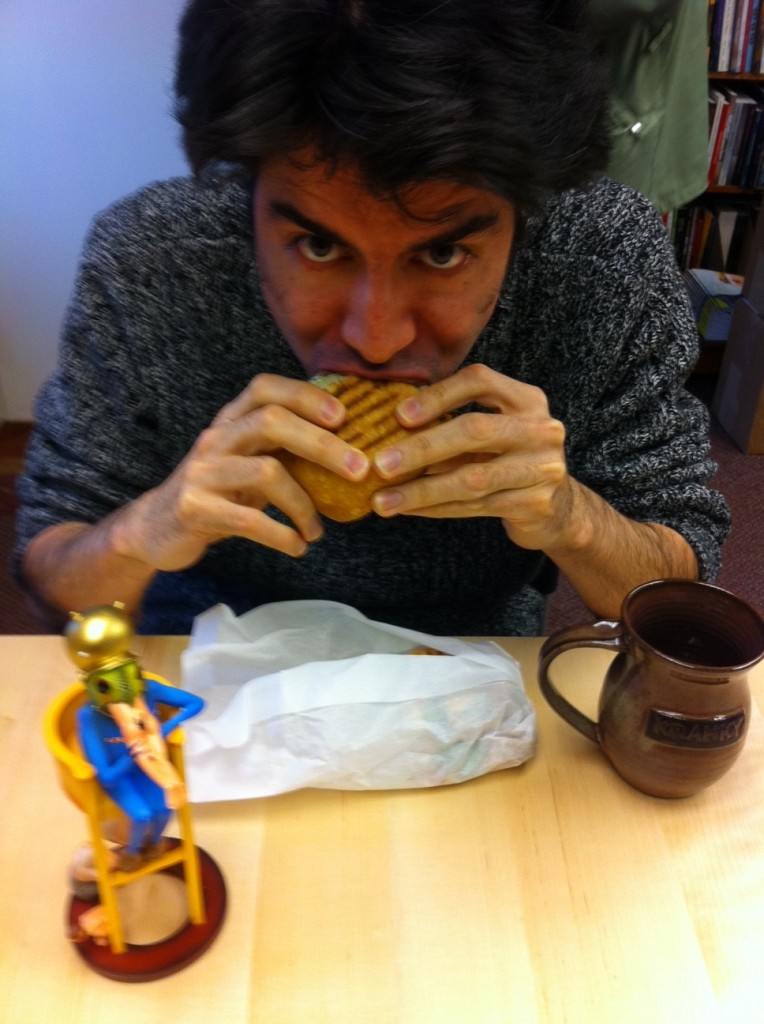The world is a poem, repetition rules, influence is rhyme. In his self-introduction to his poem Garry Thomas Morse refers to an essay by Robin Blaser. I interviewed Blaser, one of my first radio shows, when I hosted The Book Show on WAMC in Albany, NY, in the mid-90s, just after his amazing collection The Holy Forest came out. Blaser was originally from Idaho, but his poetry evolved out of the San Francisco Renaissance epitomized by Jack Spicer and Robert Duncan. But he was also part of a general and often under-acknowledged surge to the north, American writers and artists heading to Canada in the 60s, for political reasons and other. Blaser moved to Vancouver in 1966 where he became an immensely influential figure in Canadian poetry. Black Mountain poetry, the San Francisco Renaissance, conceptual poetry, surrealism, and even the sound poetry of Ponge have had an amazing second (or third or whatever) incarnation in Canada. Fred Wah, the current Canadian Poet Laureate, is an heir to the movement. He was there in Vancouver, on the scene, when Charles Olson made his famous 1963 visit and read from the Maximus Poems.
Garry Thomas Morse typifies an emergent generation of Canadian poets in the tradition. He’s exciting to read, fun to look at on the page (my son Jonah, 17, discovered a print out of this poem on my desk and charged in saying, “Who wrote this? This is great. He’s got the FONTS talking to each other! Look at this ‘scalar darkness’ line.”). We have here a work that is intimate yet cerebral, aware of itself as typed words on the page, yet exploding into myth. Wonderful to have it, and to have a chance to limn its context.
dg
Garry Thomas Morse: In his Own Words
My lifelong long poem The Untitled (thus far) approaches personal biotext in terms of compositional method, transmuting (or transmutating) quotidian aspects of life into refractions of poetic form in which the continuous lyric is subject to disjunctive fragmentation, for example, in more than one case into operatic fragments. I think it is fair to agree with what has been said, that my poetry has a “tendency toward epic” and is very much informed by the work of Rainer Maria Rilke, Ezra Pound, Louis Zukofsky, and Robin Blaser, to name but a few. As for the compositional structures and ideas of Mozart, Haydn, Beethoven, Stravinsky, and Mahler, hopefully the reader will on some level perceive them.
Poet Sharon Thesen recently sent me a quote from Robin Blaser’s essay on Charles Olson in The Fire that made her think of my project The Untitled, and this caused me to reflect upon the relationship between the individual and rerum natura:
“What I have noticed in the poetry and poetics of the most important poets is that they are arguing, weaving, and composing a cosmology and an epistemology. There is no epistemological cut-off in our deepest natures, nor in our engagement with life. Nor is the ambition of what is known short on its desire for cosmos. It is this structuring, large and deep in the nature of things, that still thrills us in Hesiod’s struggle for the sense of it….Repeatedly in the history of poetry we find ourselves returning to epic structures….I suggest that great poetry is always after the world–it is a spiritual chase–and that it has never been, in the old, outworn sense, simply subjective or personal.”
The Untitled (91) is something of a parody of much poetic and conceptual praxis, where the “concept” of a city “narrative” breaks down into interweavings of Artaud and Adorno, who as Leonard Bernstein has pointed out, “didn’t get the joke” where Stravinsky was concerned and thought him a demon. I’d say my lyrical demonry bears comparison with Stravinsky’s methodologies, stacking linguistic constructions like so many tritones on top of one another in order to try and resuscitate the lyric mode. And it’s kinda messy.
To paraphrase the lovely and witty dramaturge Lucia Frangione, perhaps this is the only way to tell the pie you’ve made is homemade and not store bought, ie. tidy, angular, and geometric, pretentious or inedible. Real food is thrown together.
I suppose Gustave Mahler’s heart is giving out somewhere in the poem, and so is my Anglo-Jewish grandmother’s in the hospital. By assuming these fragmentary associations, this jumble of repetitive images may live on, in dare I say, the real world.
—Garry Morse
—Garry Thomas Morse
—————————————————————————-
Garry Thomas Morse has had two books of poetry published by LINEbooks, Transversals for Orpheus (2006) and Streams (2007), one collection of fiction, Death in Vancouver (2009), published by Talonbooks, and two books of poetry published by Talonbooks, After Jack (2010) and Discovery Passages (2011), finalist for the Governor-General’s Award for Poetry and finalist for the Dorothy Livesay Poetry Prize. Morse is recipient of the 2008 City of Vancouver Mayor’s Arts Award for Emerging Artist and has twice been selected as runner-up for the Robert Kroetsch Award for Innovative Poetry.


this architecture is full of tumours of the heart. the music makes it so. beautiful.